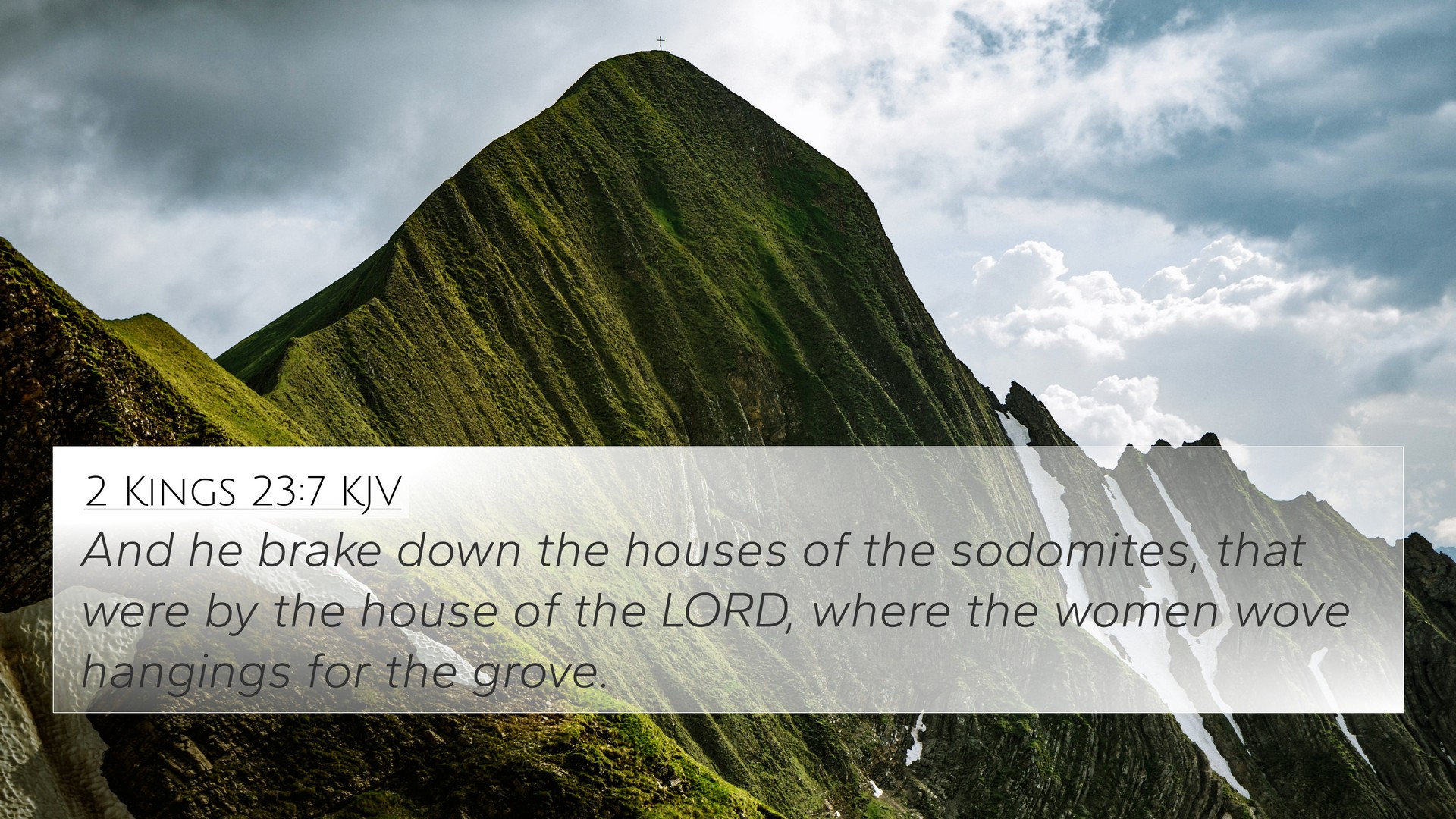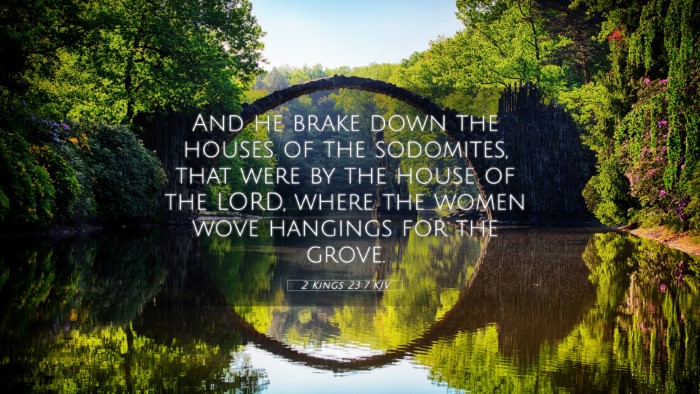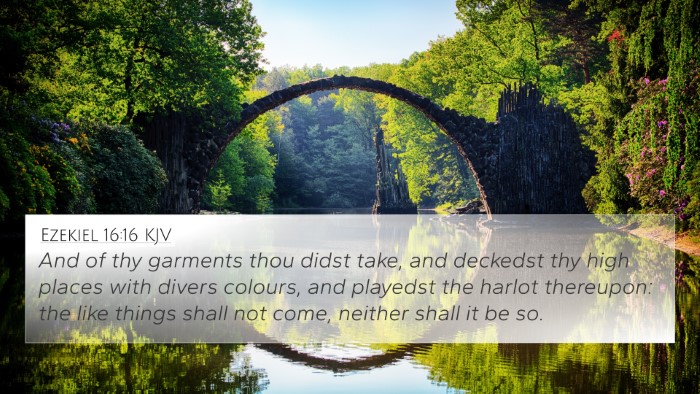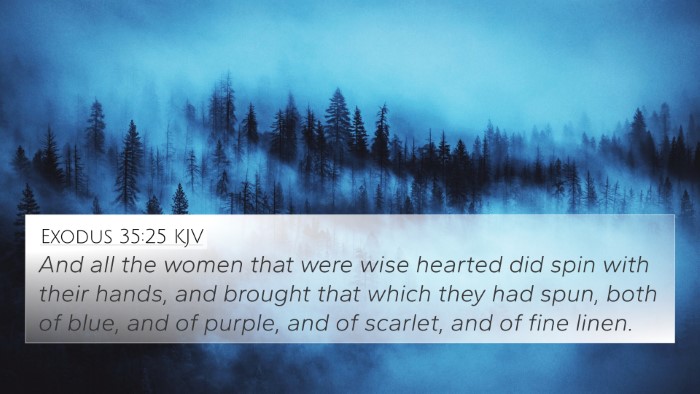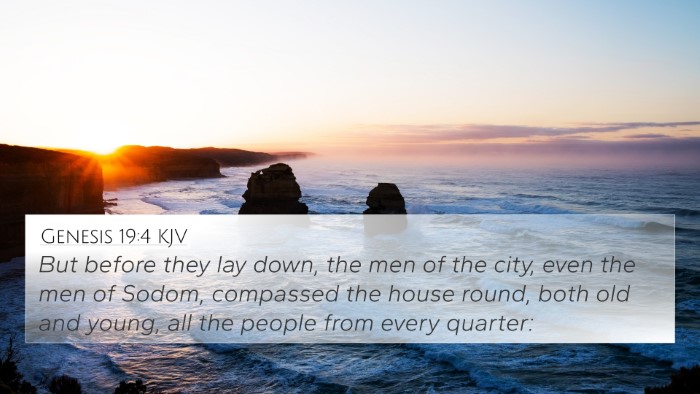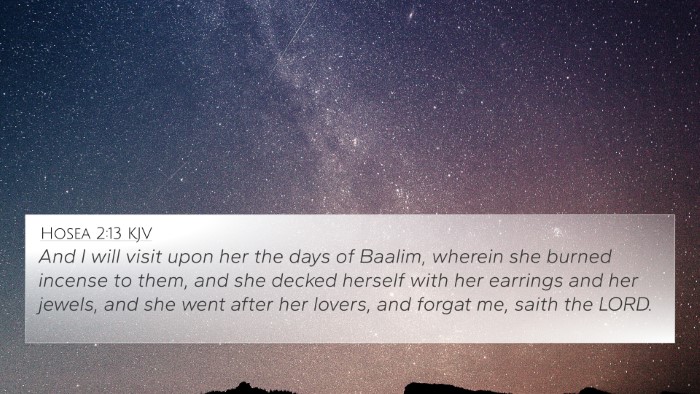Understanding 2 Kings 23:7
2 Kings 23:7 states: "And he break down the houses of the sodomites, that were by the house of the LORD, where the women wove hangings for the grove." This verse occurs in the context of King Josiah's reforms as he sought to purify Judah from idolatry and inappropriate practices.
Verse Meaning and Context
This verse highlights King Josiah's zealous actions to eradicate idolatrous practices in Judah, particularly those associated with the worship of Asherah and the ramifications of sodomy that had linked themselves to the temple.
Key Insights from Commentaries
-
Matthew Henry:
Henry points out that the houses of the sodomites were not merely brothels but were associated with a form of idolatrous worship related to the worship of Asherah. He emphasizes that the sin of sodomy is often linked with idolatry, highlighting the severity of Josiah's reforms.
-
Albert Barnes:
Barnes elaborates on the phrase "the houses of the sodomites," indicating these were establishments where homosexual practices were conducted, likely in the vicinity of sacred worship, which was a grave sin in the eyes of Jewish law.
-
Adam Clarke:
Clarke interprets the "hangings for the grove" as a representation of wrongful worship practices that had infiltrated the temple, suggesting that the weaving of these hangings for pagan worship was particularly offensive to God.
Bible Verse Connections
This verse can be cross-referenced with several other Biblical passages that discuss idolatry, homosexuality, and the sanctity of the temple. The pursuit of purity within worship can be seen throughout scripture.
-
Leviticus 18:22: "Thou shalt not lie with mankind, as with womankind: it is abomination."
-
Deuteronomy 23:17: "There shall be no whore of the daughters of Israel, nor a sodomite of the sons of Israel."
-
1 Kings 14:24: "And there were also sodomites in the land: and they did according to all the abominations of the nations which the LORD cast out before the children of Israel."
-
2 Chronicles 34:7: "And when he had broken down the altars and the groves, and had beaten the graven images into powder, and cut down all the idols throughout all the land of Israel, he returned to Jerusalem."
-
Romans 1:26-27: "For this cause God gave them up unto vile affections: for even their women did change the natural use into that which is against nature: And likewise also the men, leaving the natural use of the woman, burned in their lust one toward another."
-
Jeremiah 7:30-31: "For the children of Judah have done evil in my sight, saith the LORD: they have set their abominations in the house which is called by my name, to pollute it."
-
1 Corinthians 6:9-10: "Know ye not that the unrighteous shall not inherit the kingdom of God? Be not deceived: neither fornicators, nor idolaters, nor adulterers, nor effeminate, nor abusers of themselves with mankind."
Applying the Insights
The study of 2 Kings 23:7 through historical and theological lenses reveals the seriousness with which God regards purity in worship and conduct. It prompts believers today to consider the significance of maintaining spiritual integrity and the dangers of straying into modern forms of idolatry.
Comparative Analysis and Themes
The themes encapsulated in this verse resonate throughout scripture and emphasize the same foundational components of holiness, dedication to God, and a rejection of practices deemed abominable. A comparative Bible verse analysis encourages believers to draw connections between Old Testament laws and New Testament teachings on morality, worship, and community standards.
Further Research and Cross-Reference Tools
For deeper exploration, seeking out tools for Bible cross-referencing, such as a Bible concordance or a cross-reference Bible study guide, may provide valuable insights. Understanding how to effectively utilize these tools can shape one’s study and comprehension of Biblical texts and their interconnections.
Conclusion
In summary, 2 Kings 23:7 serves as a profound reminder of the call to purity and the destruction of idolatry in worship practices. Through thoughtful examination and scriptural parallels, believers can appreciate the rich tapestry of God’s message throughout the Bible.
